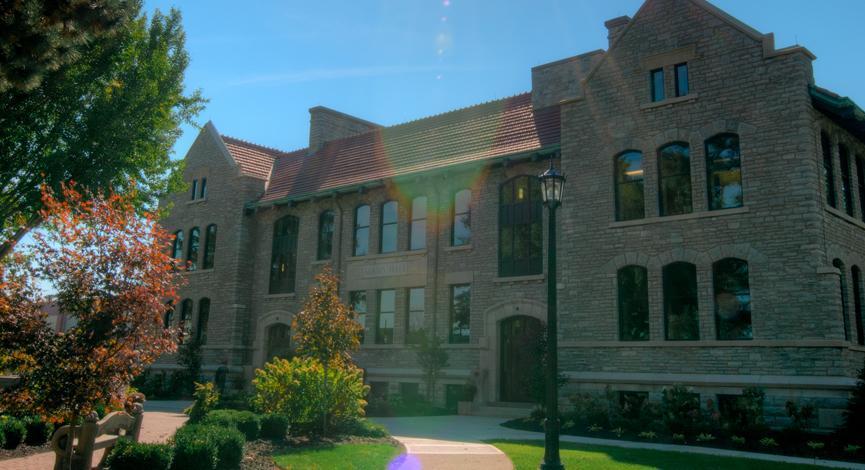
Two Heidelberg seniors stood tall among a stellar group of economics and political science scholars from Ohio and surrounding states last weekend as Heidelberg hosted the annual conference of the Ohio Association of Economists and Political Scientists.
Business administration and economics major Jerrod Lyon and history and political science major Alexander Hampton served as panelists at the conference, each presenting their research alongside two faculty members from visiting institutions.
After shaking some nerves, both came away with extremely positive experiences beyond their expectations.
Jerrod investigated the recent issue of asset bubbles in the U.S. housing market from 2006-10, which resulted in the financial credit crisis in the U.S. His economics professor, Dr. Diane Monaco, who also served as the conference organizer, called his research “meticulous.” Others agreed, awarding Jerrod the first-place undergraduate economics award at the conference.
Reflecting on his experience, Jerrod says he came away feeling grateful. “I really enjoyed all of the professors that I got to talk to. They had a real interest in what everyone had to present, making my experience that much more gratifying,” he says.
The opportunity to present his research in an academic setting and hearing critiques and suggestions for improvement was beneficial. But what Jerrod appreciated most was the relationship-building and networking among professors and students he met at the conference. “This has allowed me to make connections outside of the classroom,” he says.
Alex’s research topic was intersectional feminism, presented as part of a panel on changing political environments. He explored high-profile feminist marches/movements and applied them to his premise that they ultimately harm feminism.
“When Dr. Marc O’Reilly asked me to take part (in the conference), I was terrified because I would be on a panel with a couple of intellectuals who have their Ph.D.s,” Alex recalls. “I eventually got over my nerves, and I will admit that this conference has been one of my favorite Heidelberg moments.”
The experience gave him a boost of confidence and he appreciated meeting “brilliant” faculty members and students from other institutions. “These types of opportunities open vast amounts of doors for one to go through. That’s what this conference did for me.”
According to Dr. Haseeb Ahmed, dean of the School of Business, Computer Science and Information Technology, the conference demonstrated “the integration and connectedness between business, economics, political science and natural sciences in terms of policy making.” It was an excellent stage for the school to present its economics foundation as well as interdisciplinary collaboration by Heidelberg faculty from accounting, psychology, political science, criminology and sociology, water quality, geology and economics. Overall, the conference drew praise from the participants and colleagues from other institutions.
At the conclusion of the conference, Dr. Monaco was elected to serve as president of the OAEPS.